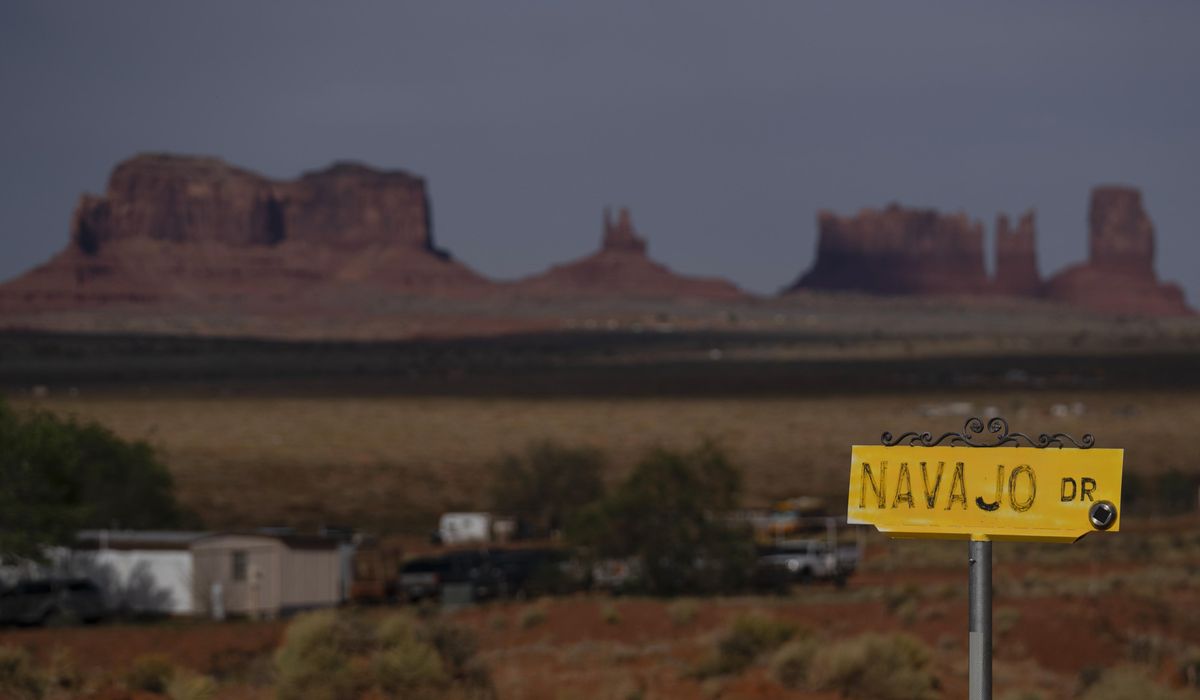


The Supreme Court ruled Thursday against the Navajo Nation’s request to require the federal government to take steps to supply water to its reservation.
The Navajo Nation, which has more than 300,000 members and a reservation roughly the size of West Virginia, sued the Department of Interior and other federal officials to try to enforce an 1868 peace treaty.
Water is scarce in Western states, and the high court noted that the area has faced the driest 23-year period in a century.
Arizona and other states intervened in the lawsuit to protect their own water supply. A federal court had ruled the treaty does not require the federal government to supply the water to the reservation — but the 9th U.S. Circuit Court of Appeals reversed the ruling, prompting Arizona to appeal to the justices.
The 1868 treaty gave the Navajo Nation land and mineral rights in exchange for ending war against one another after the U.S. won territory from Mexico.
The Supreme Court ruled Thursday that the treaty does not specifically say the U.S. government must take steps to supply water — only not interfere with water access. The reservation is bordered by the Colorado, the Little Colorado and the San Juan rivers.
The high court, in a 5-4 decision, noted the treaty does require the government to supply animals, schooling and some buildings for a number of years, but it does not speak to water supply.
“We conclude that the treaty does not require the United States to take those affirmative steps. And it is not the Judiciary’s role to rewrite and update this 155-year-old treaty. Rather, Congress and the President may enact — and often have enacted — laws to assist the citizens of the western United States, including the Navajos, with their water needs,” Justice Brett M. Kavanaugh wrote for the majority.
Justice Kavanaugh was joined in the 13-page ruling by Chief Justice John G. Roberts Jr. and Justices Samuel A. Alito Jr., Clarence Thomas and Amy Coney Barrett.
Justice Neil M. Gorsuch dissented and was joined by the liberal wing of the court — Justices Sonia Sotomayor, Elena Kagan and Ketanji Brown Jackson.
Justice Gorsuch said the tribe wasn’t asking for the government to take steps to supply water, rather for it to determine if it interfered with the reservation’s water rights and to correct any interference.
“No one has ever assessed what water rights the Navajo possess,” Justice Gorsuch wrote.
Kirk McGill, a lawyer in the Denver office of Hall Estill, an Oklahoma firm, said the ruling is a major blow against any tribe that has water rights held by the federal government.
“Justice Kavanaugh writes that while the United States set aside water rights for the Navajo Nation, it did not promise to take affirmative steps to actually secure that water for the Navajo. In other words, the court holds that it was an empty promise,” Mr. McGill said.
• Alex Swoyer can be reached at aswoyer@washingtontimes.com.
